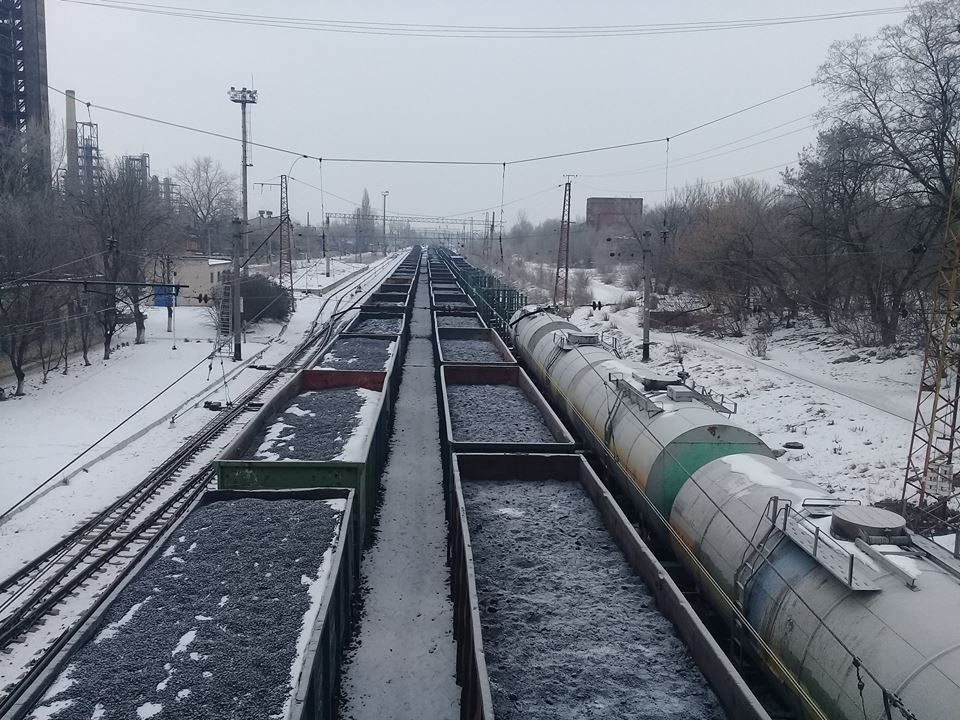Demobilized soldiers and veterans of Ukrainian volunteer battalions have launched a trade blockade of the occupied parts of Donbas.
The activists of the blockade say that the war can be stopped altogether in this way. Their actions have already met governmental opposition. Despite MPs being among the organizers, the Prosecutors Office of Luhansk Oblast has opened criminal proceedings against the participants of the blockade.
The blockade was launched on January 25. The activists claim that while Ukrainians are dying at war and a half of the population lives in poverty, oligarchs increase their wealth.
“If earlier there were only rumors, now it is all substantiated to be the reality. While the soldiers and patriots and volunteers do everything possible to defend the nation and borders, holding on to their positions at the line of demarcation from the occupied territories, it’s business as usual between Ukraine and the aggressor-occupied territories,” their statement published by the Headquarter of the blockade reads.
According to them, at the end of 2016, in just over a year, the Security Service of Ukraine issued nearly 100,000 permits for the transport of various categories of wholesale goods into and from the so-called “LDNR” (“Luhansk and Donetsk People’s Republics”).
However, they say that the problem isn’t with basic good and necessities of life, although enormous profits are being made off them:
“The biggest objection is to the trade in goods that strengthens the military capabilities of the enemy: primers, wires, gunpowder, detonators, metals, spare parts for vehicles, locomotives, machine-tools and enormous amounts of other commodities, that supplies the enemy’s defensive capabilities.”
The activists go on claiming that 47% of the value of coal that Ukraine purchases from the occupied territories makes its way into the budget of the so-called “people’s republic.” The organizers are confident that by ceasing trade with the occupied territories they can stop the war:
“Our first goal was to stop the trade and transport of goods in order to force the release of Ukrainians held in captivity. When we analyzed the details of a month’s work and realized the magnitude of this commerce, which equals in size the amount of commercial activity for the year 2013, we quickly realized that a trade blockage had the potential to bring the entire war to a complete end.”
However, the critics of the blockade call such actions illegal and say because of it the whole Luhansk Oblast can be left without electricity.
“If I am not mistaken, the branch [of the railway] which is blocked now is the only one which provides the thermal power plan in the city Shchastia [on the controlled by Ukraine territory] with coal. In its turn Shchastia is the only source of the electric power in the whole Luhansk Oblast,” said the Deputy Minister on the Occupied Territories Georgiy Tuka.
He said that if the blockade continues, the power plant in Shchastia will be left with no coal. The Samopomich MP and the organizer of the blockade Semen Semenchenko said that the blockade does not threaten ordinary citizens and all the opposite claims are just a provocation.
Another MP and the blockade participant Volodymyr Parasiuk claims that the government lies when saying that there is only coal trade with the occupied territories:
“Only with a permission of the Security Services it is possible to trade anything hither and thither with no customs taxes. So that this is an offshore hole in Ukraine.”
According to the Ukrainian government, the trade of coal with the occupied territories is a necessity. It is explained by the fact that built during the Soviet Union Ukrainian power plants require anthracite, the type of coal which is extracted in the occupied territories.
Read also: Blood coal: oligarchs, terrorists and POW labor in Russo-Ukrainian war








